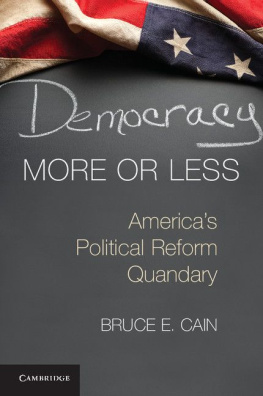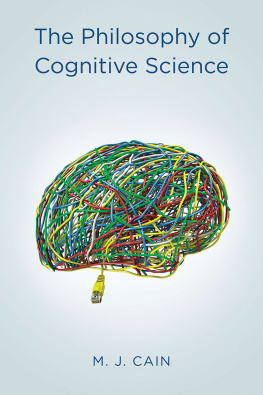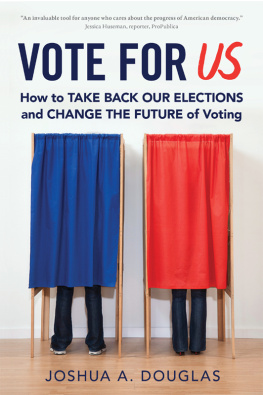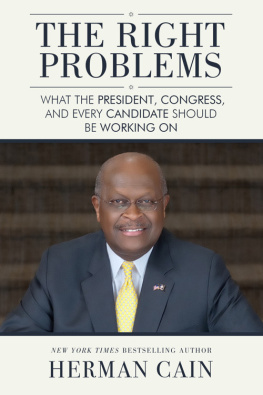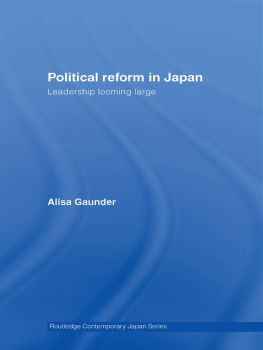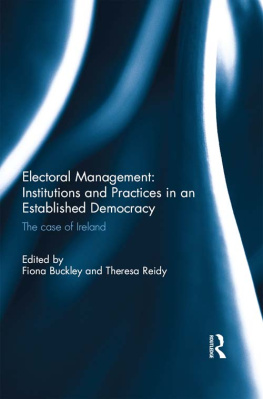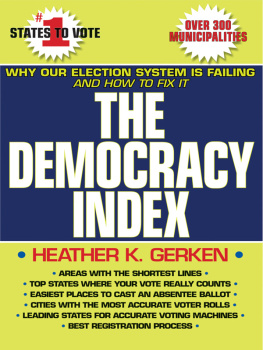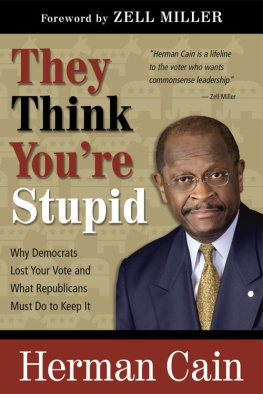Recent developments have pushed elections scholarship in new directions. As a result, interdisciplinary work has flourished, and political scientists and law professors have developed a more sophisticated sense of the relationship between law and politics. This series seeks to create an intellectual road map for the field, one that systematically examines the issues confronting both mature and emerging democracies. It will chart those new intellectual paths to spur interdisciplinary work, to identify productive ways in which scholars research agendas connect to policy makers reform agendas, and to disseminate this body of work to the growing audience interested in the intersection of law, politics, and democracy.
For a list of titles published in the series, please see .
32 Avenue of the Americas, New York, NY 100132473, USA
Cambridge University Press is part of the University of Cambridge.
It furthers the Universitys mission by disseminating knowledge in the pursuit of education, learning, and research at the highest international levels of excellence.
www.cambridge.org
Information on this title:www.cambridge.org/9781107612266
Bruce E. Cain 2015
This publication is in copyright. Subject to statutory exception and to the provisions of relevant collective licensing agreements, no reproduction of any part may take place without the written permission of Cambridge University Press.
First published 2015
Printed in the United States of America
A catalog record for this publication is available from the British Library.
Library of Congress Cataloging in Publication Data
Cain, Bruce E.
Democracy more or less : Americas political reform quandary / Bruce Cain,
Stanford University.
pages cm. (Cambridge studies in election law and democracy)
ISBN 978-1-107-03963-6 (hardback)
1. Democracy United States. 2. Representative government and representation
United States. 3. Political culture United States. 4. Political participation
United States. 5. Polarization (Social sciences) United States. I. Title.
JK1726.C35 2014
320.973dc23 2014018137
ISBN 978-1-107-03963-6 Hardback
ISBN 978-1-107-61226-6 Paperback
Cambridge University Press has no responsibility for the persistence or accuracy of URLs for external or third-party Internet Web sites referred to in this publication and does not guarantee that any content on such Web sites is, or will remain, accurate or appropriate.
Acknowledgments
Normally, authors, when recognizing those who have aided them in the production of their book, absolve them of any blame for its weaknesses. With respect to my editors, Heather Gerken, Guy-Uriel Charles, and Michael Kang, I can do the first, but not the second. Heather and Guy in particular lobbied me until I undertook this project and so must share the blame with me for this. All three provided many comments and directed the rewrites. Next on the list are Rick Pildes and Sam Issacharoff, who despite decades of enduring my complaints about their work, invited me to spend a year at the NYU Law School as a Straus Fellow to write the book. I am indebted to them. Similarly, Dennis Thompson has had to put up with my skepticism in the past, but nonetheless provided me with many useful comments and the title for the book. At NYU, I profited from comments and discussions with Nancy Rosenblum, Bernard Grofman, and Alessandra Casella especially. John Ferejohn was an initial reader and provided many thoughts about the book, as he always does so ably. Ned Foley and Dan Tokaji were instrumental in this enterprise, providing me with a symposium at Ohio State about my book and comments as well. I am very grateful to them and to their colleagues, Michael Neblo, Piers Turner, Paula Baker, Stphane Lavertu, and Daphne Meimaridis. Richard Hasen, Michael Shenkman, Lee Drutman, Mark Rush, Genevieve Lester, Denis Lacorne, Gillian Peele, Frederick Douzet, and Thad Kousser all provided me with encouragement and much feedback. My Stanford colleagues Larry Diamond, Frank Fukuyama, Stephen Stedman, Morris Fiorina, Tino Cuellar, David Hayes, Matt McCubbins, Alberto Diaz-Cayeros, Daniel Stid, Larry Kramer, Nate Persily, and Didi Kuo gave me valuable reactions. Finally, while my wife, Jody Foster, could not bring herself to read the entire book, she did get through enough to conclude that it got better.
The Ascendancy of Reform Populism
Americans have tried repeatedly to improve their political system in various ways. They have extended voting rights to women and racial minorities, ensured more regular presidential rotation, replaced indirect with direct Senate elections, and regulated congressional pay by constitutional amendments. State and local governments have experimented with nonpartisan elections, the citizens initiative, recall, referendum, participatory budgeting, and city manager government. Political jurisdictions at all levels have passed measures to reduce material corruption, control campaign finance, improve government ethics, and lessen government secrecy. The result is a complex assortment of limits, prohibitions, and requirements that regulate many facets of political activity.
American political improvement is also highly institutionalized. Nonprofit reform groups abound some with broad agendas, such as Common Cause, the League of Women Voters, U.S. PIRG, and the Brennan Center, and others with more specific democratic goals, such as Open Secrets and Open the Government (transparency), the Fund for Constitutional Government (effective government oversight), No Labels (lessened partisanship), OMB Watch (fiscal responsibility), Democracy 21 and the Campaign Legal Center (tighter lobbying and campaign finance controls), and Little Sis and the Center for Voting and Democracy (better voting procedures). But despite some notable reform achievements, there is a nagging doubt about all of this activity: is America truly making progress, or is the goal of achieving a less imperfect democracy simply futile?

